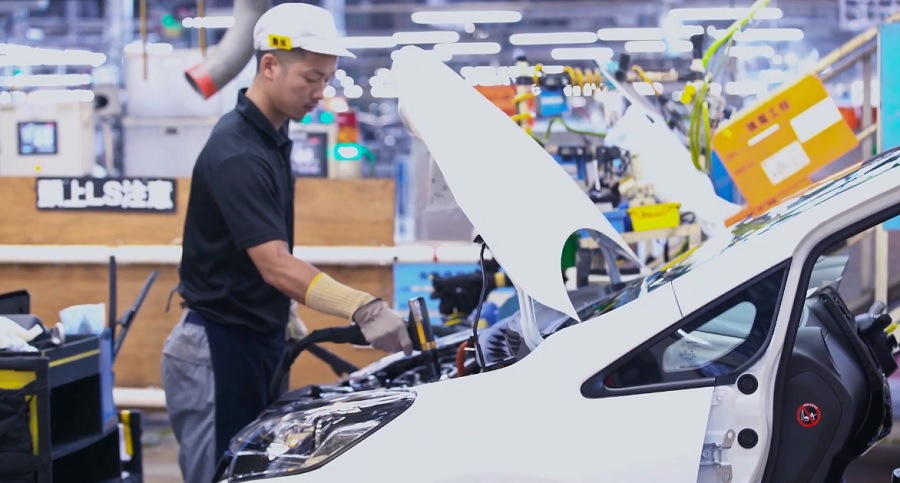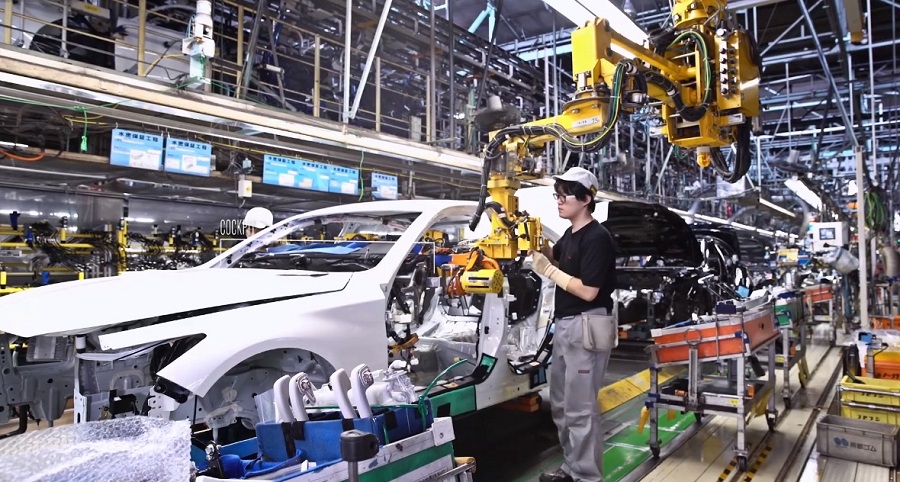Global car sales, which have fallen sharply due to the spread of the new coronavirus, are recovering. Sales in May are expected to be positive for the second consecutive month in China. In the United States and Europe, it seems that the amount of decrease has narrowed due to the reopening of retail stores, and it has bottomed out. On the other hand, the rate of decline has worsened in Japan. The recovery is delayed due to the effects of the pre-emption of last-minute demand before the consumption tax hike last fall.

China was the first to recover. According to the China Automobile Manufacturers Association, new car sales in May increased by 11.7% from the same month of the previous year to 2,316,000 units, which was positive for the second consecutive month. The government introduced purchase subsidies to stimulate demand for those who could not purchase new cars with the new Corona War. It returned to the level before the new Corona epidemic.
The US and Europe are also heading for recovery. According to MarkLines, US new car sales in May fell 30.1% to 1.11 million units. The drop has improved from a 46.6% decline in April, recovering 1 million units for the first time in three months. Sales of retailers resumed mainly in the suburbs, and sales of major manufacturers such as General Motors (GM) picked up. GM sales executives in New Jersey said, “Sales began to pick up in late April.”
In Europe, Germany was down 49.5% to 168,148 units. The store will resume operations from the end of April. The amount of decrease improved from the 61.1% decrease in April. In the UK, it decreased by 89% to 20,247 units, which was a slight recovery from 97.3% in April, but the decline is still large.
On the other hand, Japan is lagging in recovery. According to the Japan Automobile Dealers Association and the National Federation of Light Vehicles Association, new car sales in May decreased by 44.9% to 210,285 units, which deteriorated from April (down 28.6%).
There are three factors behind the delayed recovery. The first is the rush demand before the consumption tax hike in October 2019. Sales increased 12.9% in September 2019 due to demand after the tax increase, but fell by 24.9% in October to a negative value. Since then, the year-on-year decline has continued. A store in Kyushu said, “In February to March this year, there was less excitement at the end of the year compared to the usual year. There may be a reaction to the last-minute demand.”
The second reason is that the request for refraining from going out due to an emergency declaration overlapped with the large holidays in May. Hiroto Suzuki partner of Arthur Di Little Japan analyzed, “The restrictions on going out were not as strict as in other countries, but the large holidays have a big impact because business talks are concentrated every year.”

The third point is that consumers’ willingness to purchase high-priced products has declined due to the economic downturn. Customers are returning to the stores, but “a lot of customers hesitate to buy because they are worried about a summer bonus” (Osaka store).
Unlike the United States, which has a car culture, automobiles are considered “unnecessary” in urban areas in Japan and tend to be given low priority to purchase. Economic activity began to resume after the end of coronavirus emergency, but the outlook for new car sales in Japan is uncertain.









